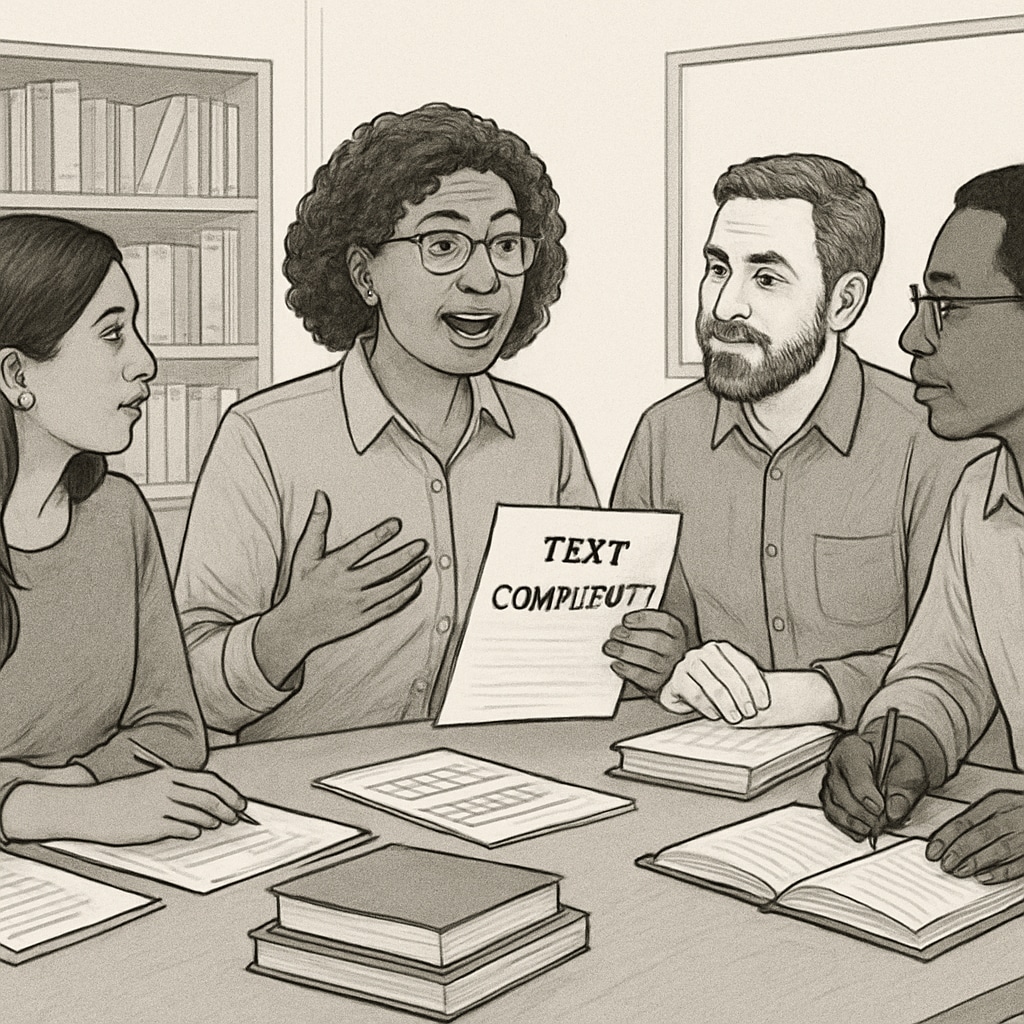Understanding text complexity is crucial for effective reading comprehension, and K-12 teachers are uniquely positioned to contribute their expertise in this area. By volunteering as participants in text complexity perception research, educators can help shape the future of literacy education. This initiative invites teachers to invest just 30 minutes of their time, offering valuable professional judgments that directly impact students’ reading development.

The Importance of Text Complexity Research
Text complexity plays a significant role in determining how well students understand and engage with reading materials. Defined as the level of difficulty involved in decoding and comprehending a text, text complexity encompasses factors such as vocabulary, sentence structure, and content organization. Researchers rely on educators’ insights to interpret how these elements affect student learning.
Teachers, as daily practitioners, possess firsthand knowledge of their students’ reading abilities and challenges. Their participation in text complexity research ensures that findings are both practical and applicable within real classrooms. For example, educators can provide feedback on whether specific texts are age-appropriate, culturally relevant, or aligned with curriculum standards.
How Teachers Can Participate
Engaging in this research is simple and impactful. K-12 teachers are invited to spend just 30 minutes assessing text samples and sharing their perspectives. These contributions help refine educational tools, such as readability formulas and instructional materials, which improve students’ reading experiences.
Participation involves performing tasks such as:
- Evaluating sample texts based on their complexity and readability.
- Providing feedback on how students might interact with specific texts.
- Offering suggestions for optimizing text selection in teaching environments.
By contributing their expertise, teachers become advocates for enhanced literacy practices, ensuring that educational strategies align with real-world classroom needs.

The Broader Impact of Teacher Involvement
When teachers participate in text complexity research, the benefits extend beyond individual classrooms. Their input drives innovation in literacy education, resulting in resources that better support diverse learning needs. Additionally, their involvement highlights the critical role educators play in shaping academic research and policy development.
For example, studies informed by teacher feedback can lead to more inclusive text recommendations, addressing cultural diversity and equity in reading materials. Furthermore, these efforts contribute to creating standardized guidelines for assessing text complexity, ensuring consistency across educational systems.
Why You Should Volunteer
Educators’ time is precious, but dedicating just 30 minutes to text complexity research can yield significant rewards. As a participant, you will:
- Help improve students’ reading comprehension and literacy skills.
- Gain insights into the factors that influence text complexity and readability.
- Contribute to the development of better teaching tools and strategies.
- Join a community of educators committed to advancing literacy education.
By volunteering, you empower both researchers and students, ensuring that reading materials and teaching methods are optimized for success.
Final Thoughts: Teachers are invaluable contributors to educational research, particularly in areas like text complexity and reading comprehension. Your expertise and professional judgment can help shape the future of literacy practices. Take just 30 minutes to participate and make a difference in students’ lives and learning outcomes.
Learn more about text complexity on Wikipedia
Explore reading comprehension on Britannica


